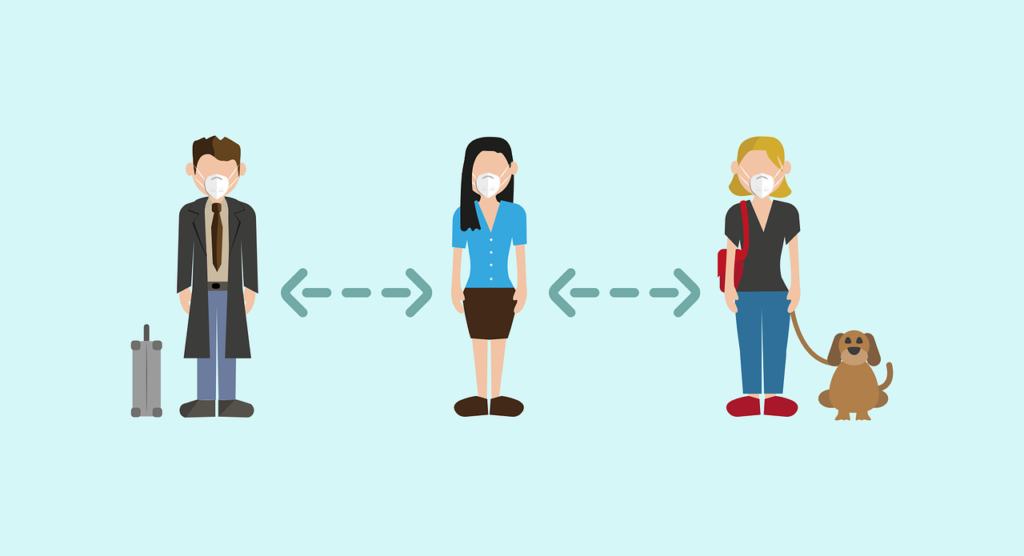
It has been 112 days since the World Health Organization declared COVID-19 a pandemic. Globally, more than 500,000 people have lost their lives to the virus according to WHO data, and the case count now includes more than 10-million people — more than a quarter of which are in the United States.
There have been 219,000 cases counted in California, and just shy of 6,000 deaths. New York, the one-time epicenter, has experienced 393,000 confirmed cases and 24,000 deaths. Of course, these numbers only represent people who have tested positive, and do not reflect a holistic view of everyone in the community who has the virus and has not been diagnosed.
Despite many public health officials speaking out on the downsides to reopening cities in an attempt to kickstart the flailing 2020 economy, Governors and Mayors pushed ahead, allowing citizens to mingle at restaurants, bars and in public. It seems we are now seeing the repercussions of those choices, as told by the data available from Los Angeles – not only the epicenter of California’s outbreak but also the county that currently has the most number of cases nationwide.
It was May 29 when California Governor Newsom announced the immediate re-opening of restaurants, hair salons, and barbershops in LA. There were 55,000 cases in the County as of that day according to LA Public Health data, approximately half of what there is now just 4-weeks later. The Memorial Day holiday, and the official start to the summer, was just 4 days earlier, a celebration that some are blaming as the impetus for the spike in cases seen in June.
People congregated at beaches nationwide and chose to ignore the advice given by authorities to wear masks over the Memorial Day weekend. “It is like letting the air out of a balloon right now,” a beachgoer told CNN about the need to enjoy the moment. The LA County Parks and Recreation division noted that there were “overwhelming crowds that were not following the COVID-19 public health requirements.”
But it should also not be forgotten that just days after these reports of Californians not following safety precautions, the Governor lifted restrictions and allowed for further opening of the community. LA Mayor Garcetti stated today that the decision to reopen businesses was made after careful consideration into public health and the economic prosperity of Angelenos to make a living.
Mayor Garcetti cautioned that we are now at a pivotal moment in the fight against the Coronavirus and asked citizens to prioritize their health and that of others leading into the next holiday weekend. “COVID-19 is taking control and we need to take control back,” Garcetti said. He called for Southern Californians to be realistic about the virus still being active and to do their part to fight transmission of the virus.
It sounds simple in theory. So why aren’t we doing more to put our health and wellbeing before our freedom?
Dennis Proffit is a Professor of Psychology at the University of Virginia. His book, ‘Perception: How The Body Shapes The Mind,’ delves into biases when making decisions. Dr. Proffitt provides the following three explanations for why we are driven by our beliefs and desires, when responding to COVID-19:
- We select our informational sources.
- In the face of uncertainty, we are biased to perceive the world as we would like it to be.
- Our intelligence abandons us when we try to reason about facts that conflict with our personal biases.
He concludes that these factors contribute to individuals “turning a blind eye to science,” and that “in the face of uncertainty, we are biased to perceive the world as we would like it to be.”
Researcher Joana Gonclaves-ca took this notion a step further, in a recent article published in the journal ‘Nature.’ In her article titled ‘In the fight against the new coronavirus outbreak, we must also struggle with human bias’, Gonclaves-ca points to the need to overcome misinformation and conspiracy theories.
“It is possible that people sharing such misinformation overestimate their ability to understand very complex problems and might be experiencing a form of the Dunning-Kruger effect, which states that people are often more confident than they are knowledgeable,” Gonclaves-ca writes in the paper. She warns that “this may be exacerbated by a lack of trust in institutions, be they governments, the pharmaceutical industry, or the traditional media.”
And thus, there is no quick answer or fix to the question ‘what will it take for us to prioritize our health during this pandemic.’ What is required is a monumental shift in the trust we put into expertise, science, and the sources that provide us with information. Unfortunately, such a shift is likely to take decades, and that is a timeline that far exceeds the expediency of devastating outcomes that will come about by not adhering to precautions to avoid mass-transmission of the novel coronavirus.

The obligations of our representatives in Washington are to protect our liberty, not coddle the world, precipitating no-win wars, while bringing bankruptcy and economic turmoil to our people. —- Ron Paul
– If you give him a penny for his thoughts, you’d get change. – Not the sharpest knife in the drawer. – A prime candidate for natural deselection. — [Ideas for flamewars]